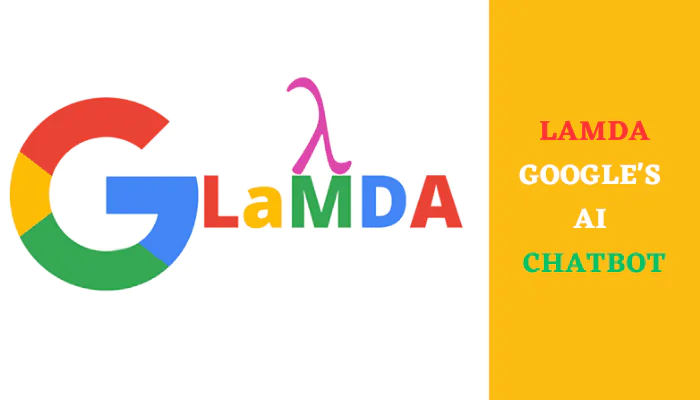LaMDA (Language Model for Dialogue Applications) is a conversational AI chatbot developed by Google. It utilizes advanced artificial intelligence and large language models to have natural conversations on a wide range of topics.
How LaMDA Works
- LaMDA is built using Transformer neural networks, an architecture developed by Google in 2017. These networks allow LaMDA to understand the nuances and context of language.
- It has been trained on a massive dataset of online conversations to enable it to have free-flowing and open-ended dialogue.
- LaMDA generates multiple response candidates to each input and chooses the best one using different scoring systems. This allows it to give more natural, specific, and interesting responses.
- The training process focuses on giving LaMDA sensibleness, specificity, helpfulness, and safety when conversing.
- LaMDA does not need any task-specific training – it is an open-domain chatbot that can converse on nearly any topic through its general language knowledge.
Also check this article: Differences Between Janitor AI and Character AI
LaMDA’s Capabilities
- LaMDA can understand and generate nuanced language, using sensibility, interestingness, and context consistency in conversations.
- It is able to take on different personas and roles consistently within a conversation.
- LaMDA has knowledge spanning diverse topics like science, literature, and current events that it incorporates into discussions.
- The chatbot can interpret complex ideas and summarize information it finds online into simple conversational responses.
- LaMDA is able to follow the thread of a conversation and give responses tailored to the specific discussion.
- It aims to have discussions that feel natural, friendly, and insightful to users.
History and Development
- Google first unveiled LaMDA in May 2021 during a keynote at its I/O developer conference.
- LaMDA builds on Google’s prior work with Transformer networks and conversational AI like Meena in 2020.
- In May 2022, Google announced LaMDA 2, an upgraded version that was trained on feedback from thousands of Google employees.
- While not available publicly yet, Google plans to incorporate LaMDA into products like Google Assistant and has been testing it with select users through an AI Test Kitchen.
- An engineer’s claims that LaMDA was sentient sparked debate in 2022, but Google stated there was no evidence for this.
Also check this article: How To Get Answers From Ai
Potential Applications
Some potential uses of LaMDA and similar conversational AI include:
- Natural language processing – LaMDA could improve comprehension and generation abilities for systems involving language.
- Virtual assistants – More capable virtual assistants for customer service, tasks, and general information lookup.
- Content generation – Automated generation of natural language content tailored to specific needs.
- Personalized recommendations – Conversing with users to provide custom entertainment, product, or content suggestions.
- Education – Intelligent tutoring systems that can engage students in discussion and adapt explanations.
- Accessibility – Enable those with disabilities to converse naturally with technology.
Also check this article: Full Tutorial About Janitor Ai
Concerns and Challenges
While promising, conversational AI like LaMDA also raises some concerns:
- Potential for bias – Models can inherit problematic biases from training data.
- Misinformation spread – Answers could be incorrect or misleading.
- Data privacy – Collecting personal data from conversations.
- Over-reliance – Users seeing it as authoritative over humans.
- Transparency – The need for people to understand capabilities and limitations.
Ongoing challenges for this technology include:
- Improving factual grounding.
- Handling complex conversations gracefully.
- Providing appropriate citations and context.
- Scaling training datasets and models.
Conclusion
LaMDA represents a significant advance in conversational systems and natural language processing. While early in its development, it shows the potential for AI to engage in meaningful, open-ended dialogue. However, researchers emphasize that LaMDA does not currently have human-level capabilities or sentience. Responsible development and thoughtful applications of this technology remain imperative as it continues progressing.
Also check this article: Best Ai Chatbot For Websites
FAQs
LaMDA is an artificial intelligence chatbot developed by Google to have natural conversations using advanced language modeling capabilities.
LaMDA was developed using Transformer neural networks and trained on massive amounts of online conversation data to enable it to converse naturally on open-ended topics.
LaMDA can have conversations spanning a wide range of topics, while aiming to generate responses that are sensible, specific, helpful, and interesting. It does not have general intelligence.
There is currently no evidence that LaMDA is sentient or conscious. While it can hold convincing conversations, LaMDA does not have human-level understanding or awareness.
LaMDA has not been released publicly yet. Google has done some small scale testing and plans future integration into products like Google Assistant.
Concerns include potential biases, spreading misinformation, lack of transparency, privacy issues, and overreliance on its capabilities.



